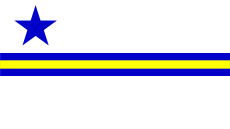Arlandican nationalism
The Arlandican nationalism is the official ideology of the Kingdom of Arlandica. It asserts that Arlandicans reside in a single sovereign state, places significant importance on the monarchy as a symbol of the country's unity and stability, and promotes cultural unity among Arlandicans.

Arlandican nationalism is a defining aspect of the country's national identity. It promotes unity among its people, encouraging political awareness, self-reliance, and a strong sense of duty toward future.
History and development
On October 2020, its founder and current monarch, Jerold I, introduced Marxism-Leninism as the country's ideology.
However, he later decided to remove all leftist influence in the country due to criticisms. This decision led to a failed coup attempt by his sister shortly after the removal.
Arlandican nationalism was finally introduced by Jerold I following the Arland Crisis.
On July 28, 2023, after a constitutional amendment, Arlandican nationalism officially became the country's ideology in accordance with Section 5, Article 1 of the constitution.
Ideology

Arlandican nationalism is a right-wing ideology, characterized by a strong emphasis on monarchism. Arlandicans perceive the monarchy as a source of continuity and stability, which they regard as essential for the nation's prosperity. The Arlandican monarchy serves as a symbol of the country's unity.
Beyond the monarchy, Arlandican nationalism is firmly rooted in cultural nationalism. This reflects the high value Arlandicans place on their diverse cultural heritage and their commitment to its protection and promotion. Cultural preservation is seen as an important element of their collective identity.
Elements of expansionism can also be included in the ideology, which views the expansion of Arlandica as "beneficial for the people", according to Jerold I.
Self-reliance motivates individuals who support Arlandican nationalism, leading to policies that reject annexations by other micronations. On 2020, several micronations in the Philippines, including the Metropolitan Electorate of Fidelis, Free Rendonese State, Ruslavia, and Federation of Okasakawa, proposed annexations. Arlandica rejected all offers except for Renderfeit, resulting in the signing of the Arlandic Agreement in March 2021. However, Jerold I later suspended the agreement, leading to the Arland Crisis, which ended in victory for Arlandica. He argued that his country had the right to self-determination and that it was time for Arlandica to chart its own course.
Regionalism is also promoted in accordance with one of the principles of Arlandican nationalism: "The government is required to create laws regarding decentralization of the country's administrative divisions, such as provinces.." All ethnicities are considered equal and have the right to self-governance, but they must remain united under the national flag.
As a right-wing ideology, it is also linked to anti-communism.
The Principles
On October 29, 2023, Jerold I authored an essay defining the four most important principles of Arlandican nationalism. The essay is written by the monarch himself and serves as an instrument declaring the principles of Arlandican nationalism. Here are the principles:
- Right to Exist
- Arlandican Superiority
- Loyalty to the Monarchy
- Expansion of the Realm
- Combating Extremism
- Rule of Law Adherence
- Decentralization
- Cultural Unity
- Importance of the Family
Role in politics
Arlandican nationalism played an important role in the politics of the micronation. It has been officially declared as the national ideology according to the constitution, and as a result, most Arlandican politicians either initially or wholly adhere to this ideology. These politicians are likely to be affiliated with the National People's Party, the country's sole ruling party, whose primary ideology is Arlandican nationalism.
However, despite this, the constitution still allows Arlandicans to join or create another political parties, ensuring the preservation of freedom of expression and the freedom to participate in politics.
Personification

The personification of Arlandica has traditionally been feminine and predominantly maternal since the Second Era. The most common terms for the national personification of Arlandica are "Bantugyana" or "Mother Arlandica."
Bantugyana is a made-up term derived from the Cebuano word for "Motherland." King Jerold I views Athena, the ancient Greek goddess, as an inspiration for the concept of Bantugyana. In this concept, reimagined as the Goddess of Strategy and Wisdom, she would guide the kingdom’s political leaders, serving as a protector of Arlandica’s ideals and ensuring that decisions are made with strategic intelligence and honor.